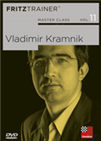Optimism and hard work
 Almost five years ago, on Easter Monday 2018, a 13-year-old stole the spotlight from Magnus Carlsen and company at the Grenke Chess Festival. Vincent Keymer had just won the strong Grenke Open with a surprising 8/9 performance, outscoring the likes of Anton Korobov and Alexei Shirov. Rated barely above 2403 and still an IM, Keymer’s story until reaching 2700 was not one of flash, but one of solid progress.
Almost five years ago, on Easter Monday 2018, a 13-year-old stole the spotlight from Magnus Carlsen and company at the Grenke Chess Festival. Vincent Keymer had just won the strong Grenke Open with a surprising 8/9 performance, outscoring the likes of Anton Korobov and Alexei Shirov. Rated barely above 2403 and still an IM, Keymer’s story until reaching 2700 was not one of flash, but one of solid progress.
A pupil of Peter Leko, the youngster has come to value highly what the Hungarian legend radiates seamlessly — optimism and a great work ethic. Keymer told André Schulz in a 2018 interview:
With Peter everything is great fun. He is a positive person and radiates his positive approach to chess. The training days with him are very intense, and even during breaks we go biking together or take a walk and talk.
After his rating remained in the 2500-2600 band for a year and a half (including the lockdown period), he reached a 2602 Elo in August 2021 and never looked back. Keymer entered 2022 with a 2664 rating and gained 30 points throughout the year, hitting a peak of 2700 points in October. Such progress is not as explosive as some of their colleagues’, but it also signals a sturdy foundation, not one that might easily crack in the future.
Besides his participations in strong round-robin events, Keymer played plenty of games in the Bundesliga, representing Schachfreunde Deizisau in the league’s 13 out of 15 rounds. But it was in another team event that the German reached the coveted 2700-rating mark, as he scored 6½ points in the first 7 rounds of the Polish Ekstraliga. The remarkable start propelled him to a 2712.8 live rating, but two final losses left him with precisely 2700 points in the next official FIDE ranking.
 This DVD allows you to learn from the example of one of the best players in the history of chess and from the explanations of the authors (Pelletier, Marin, Müller and Reeh) how to successfully organise your games strategically, consequently how to keep y
This DVD allows you to learn from the example of one of the best players in the history of chess and from the explanations of the authors (Pelletier, Marin, Müller and Reeh) how to successfully organise your games strategically, consequently how to keep yEarlier in the year, Keymer had played two legs of the FIDE Grand Prix — he had gained the right to participate by finishing fifth at the extremely strong Grand Swiss in 2021. The German played in both Berlin legs, failing to impress in the first one but scoring a commendable 3½/6 in the second, only falling short of qualifying to the semifinals after losing to Shakhriyar Mamedyarov in rapid playoffs.
His most successful showings in classical chess, however, were seen in Prague and Magdeburg. Keymer won the Challengers’ tournament in the Czech capital after collecting 6½/9 points and beating Hans Niemann in blitz tiebreakers, while at the German Masters, he excelled as the top seed in an all-German field, scoring 7/9 to leave his closest chaser a full point behind.
Not one to focus on quick-paced time controls, Keymer’s biggest accomplishment of the year came at the World Rapid Championship in Almaty. The youngster entered the tournament as the 54th seed (with a modest 2590 rating), but found himself fighting for first place with the likes of Magnus Carlsen, Fabiano Caruana and Jan-Krzysztof Duda. In the end, he got to take home a well-deserved silver medal and a 40.4 rating gain, which allowed him to cross the 2600-barrier in this time control for the first time in his young career.
Together with the naturalized Alireza Firouzja, who now represents France, Keymer is one of the two most promising chess talents from Western Europe, as more and more Asian prodigies — mostly from India — continue to rise through the ranks.

Full information at ratings.fide.com
Keymer vs. Svane - German Masters 2022
Annotated by Michal Krasenkow for ChessBase Magazine
With famous classical examples from the works of the giants, the author talks in detail about principles of chess and methods of play that we can use during every stage of the game.
Links


















 Almost five years ago, on Easter Monday 2018, a 13-year-old stole the spotlight from Magnus Carlsen and company
Almost five years ago, on Easter Monday 2018, a 13-year-old stole the spotlight from Magnus Carlsen and company 




